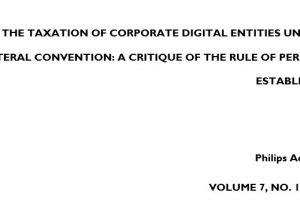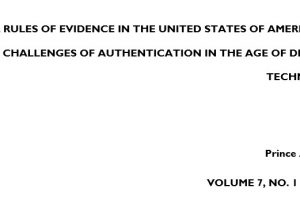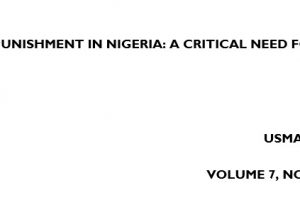REVISITING THE SUPREME COURT’S DECISION IN MR. EYITAYO OLAYINKA JEGEDE AND ANOR V INEC AND ORS (2021): A CRITIQUE
BACKGROUND AND INTRODUCTION
There is no gainsaying the fact that when the Supreme Court, which is at the zenith of hierarchy of courts in Nigeria, hands down a judgement, it remains the law until it is set aside by the Supreme Court itself in future. By virtue of this enviable position of the Supreme Court, it should always be ready to launch deep into the forest of its jurisprudential knowledge, wisdom, and proper appreciation of the facts to give the matter a worthy and merciless scrutiny so that in the end, the people who have approached it as a court of final resort will nod their head in the certainty that justice has been served. Otherwise, a death knell would seem to have been sounded to the hopes of the general populace when the Supreme Court fails to dust and starts romancing itself with judgments that are wanting in reasoning and filled with divergences that could produce absurd results. If it is an electoral matter, according to Justice Centus Nweze, the decision “will continue to haunt our electoral jurisprudence for a long time to come”.
We were still trying to understand Hope Uzodimma v Emeka Ihedioha, when we were greeted with another one of such nature. In the case of Mr. Eyitayo Olayinka Jegede & Anor. v INEC & Ors., the apex court was approached inter alia with a very important question for determination, following the Ondo State Governorship election. The question was – whether in view of the particular facts of this case, the sponsorship of Mr. Akeredolu and his deputy by the All Progressive Congress (APC) is invalid, null and void because what his excellency, Mr. Mai Mala Buni did by signing the letters (exhibit P21) of Akeredolu’s sponsorship while acting as a Governor of Yobe state is contrary to the provisions of the Constitution. To determine this issue, the apex court in the majority decision like the electoral tribunal and the Court of Appeal determined the consequences of not joining Mai Mala Buni in the petition.
This issue, which the seven-member panel was visited with, ended up splitting the opinion of the Supreme Court to the extent that there were three dissenting judgments. Nevertheless, we are still in bewilderment as to how the Supreme Court in the majority opinion later concluded that Mr. Buni was a necessary party in this case. Furthermore, that failure to join him renders the determination of the matter impossible and that to proceed to do so would have violated the fair trial of the case. Consequent upon the foregoing, this paper sets out to examine closely the majority judgement of the Supreme Court in this case, with a view of justifying the assertion that if this decision is given a critical analysis, it should not be taken as the gospel truth of the matter. Put starkly, if the Supreme Court in the opinion of the majority had properly appreciated the real issues before it, it would not has come to the conclusion that it was necessary to join Mr. Buni in this case.
To read the full article, click here
UNILAG Law Review, (2022) Volume 5 Edition 2
About the Author
Ewulum Ifechukwu Christopher is a prolific student writer and researcher who is currently the team leader, Content development and Research team, Excel in Law. He is currently a Student Ambassador at the Legal Bridge Initiative. He is also an Associate in Justice Oputa Chambers, University of Nigeria, Students’ Bar Association. He is currently in the committee that is reviewing the Student Union Government (UNN Chapter) High Court Rules.




